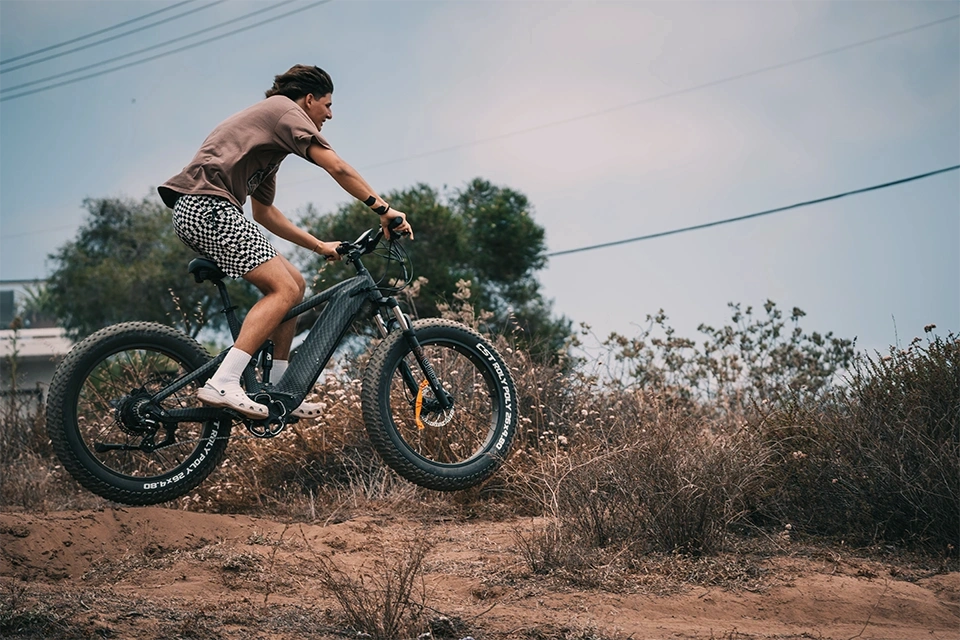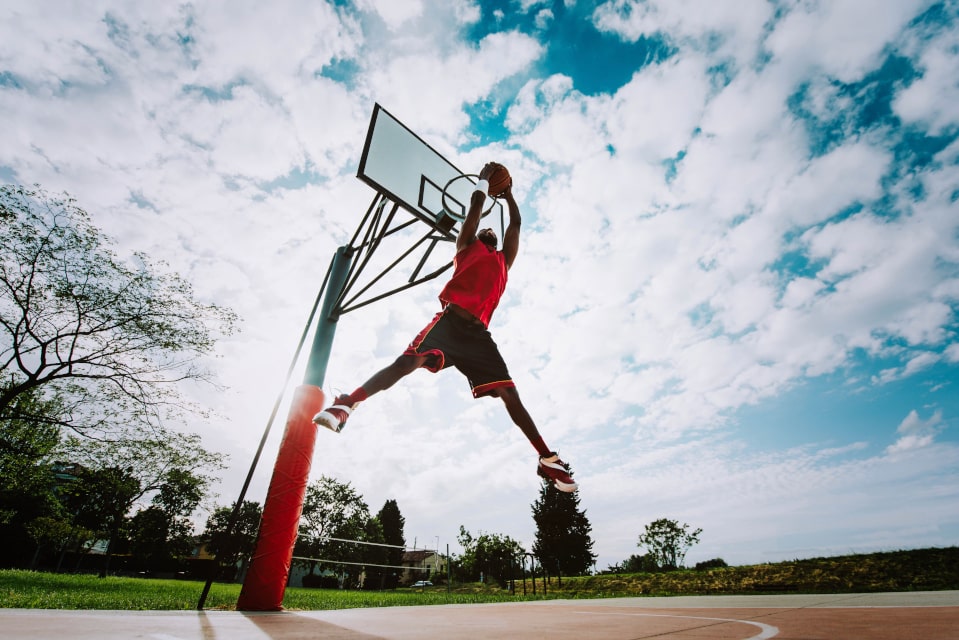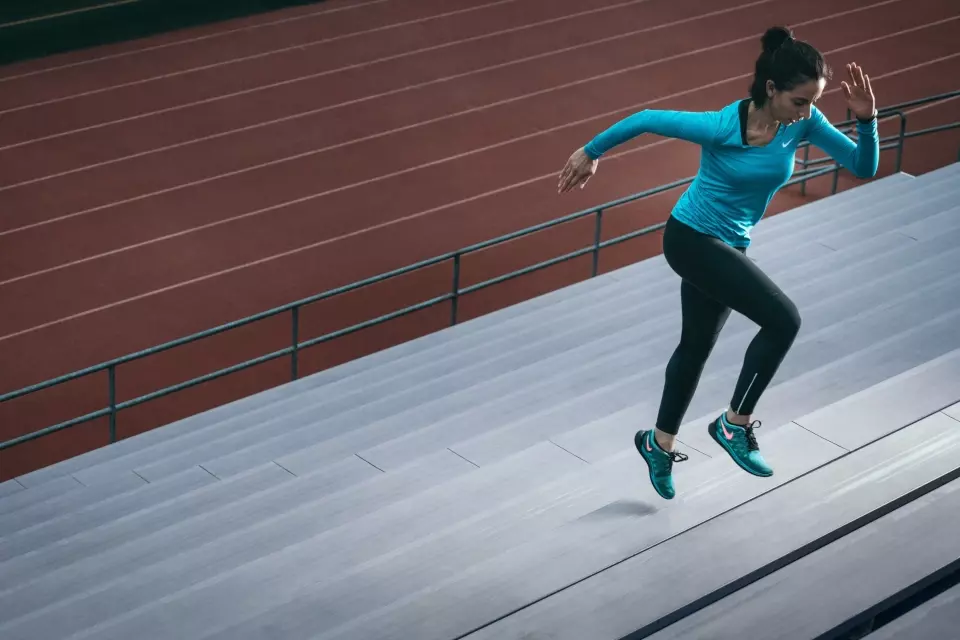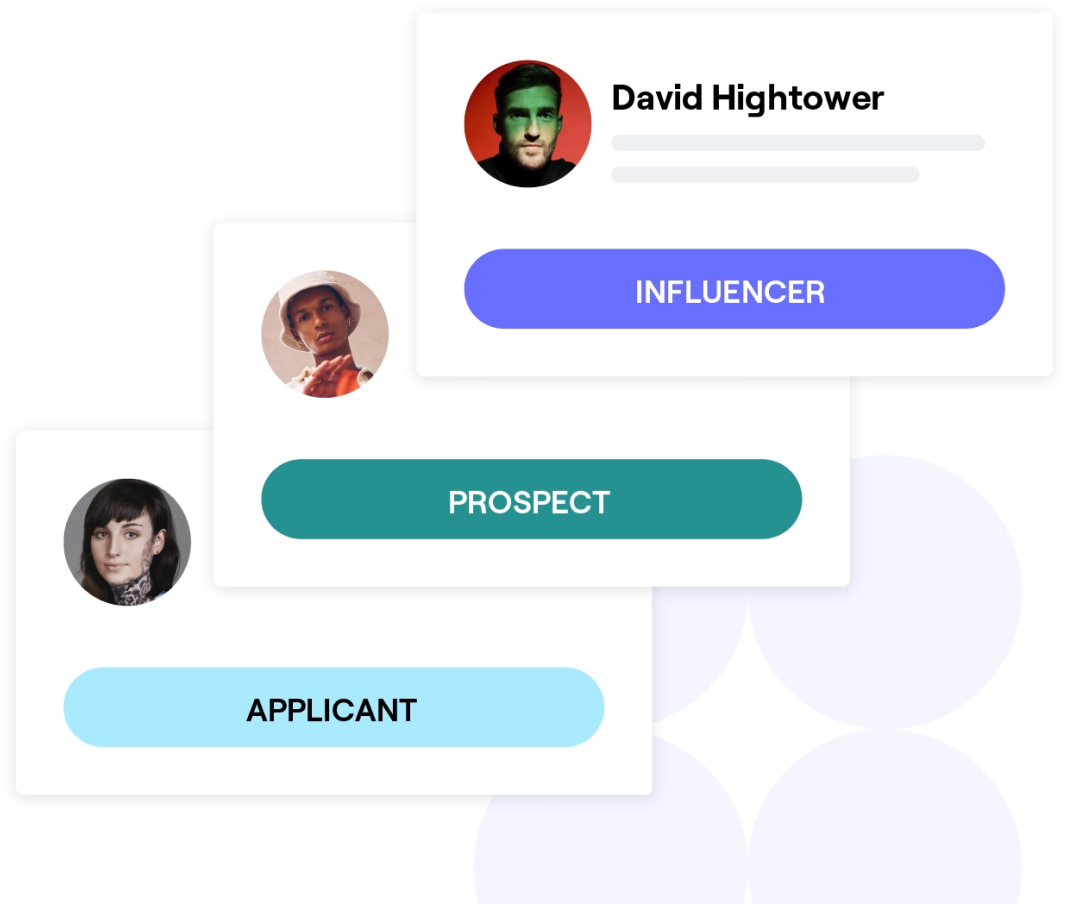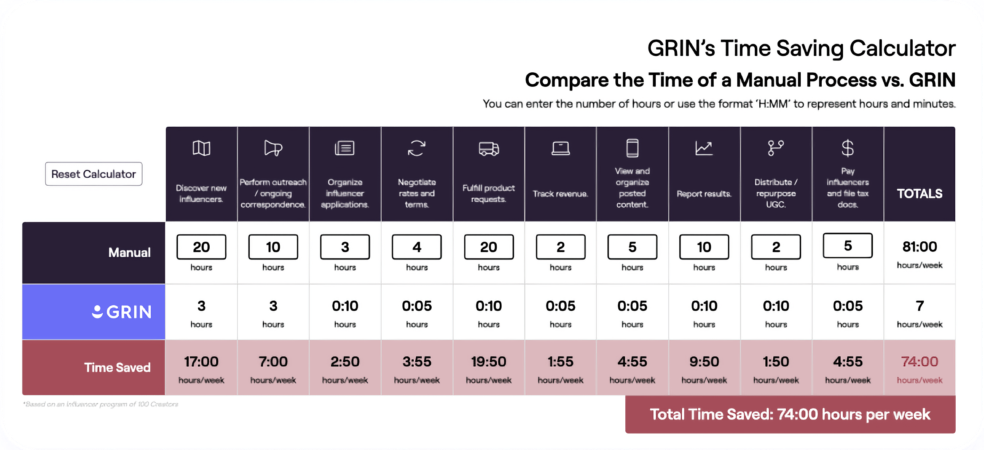People love compelling stories of those who’ve defied the odds and accomplished incredible feats. Nowhere is this quite so apparent as it is in the world of sports.
Athlete marketing is in many ways the start of modern influencer marketing. Today, social media has expanded the reach of athlete creators so that even individuals with as few as 1,000 followers can make a major impact among niche audiences.
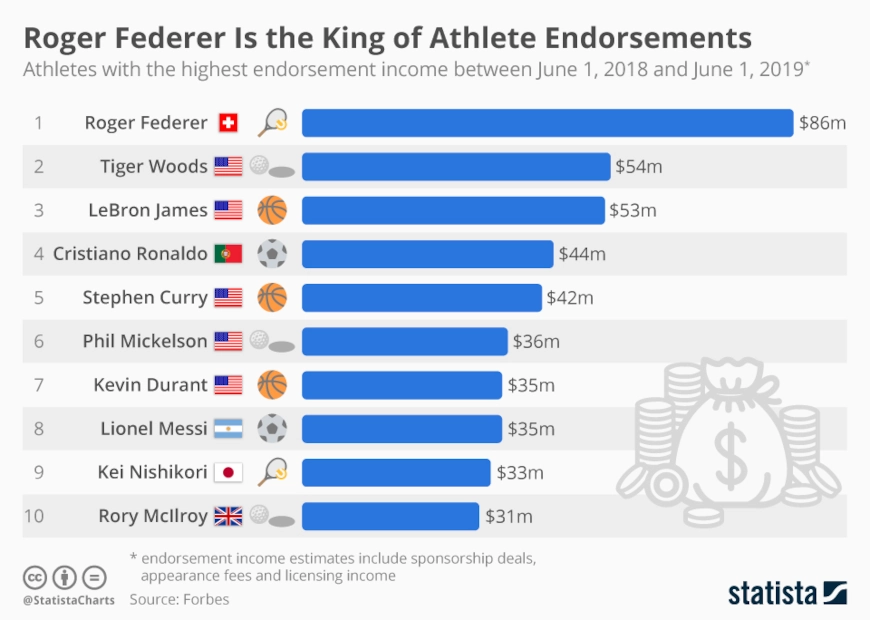
What are athlete creators?
Athlete creators are athletes with a vibrant online presence and engaged digital community.
Some athlete creators are professional sports celebrities with millions of followers, while others are fitness experts with smaller, more dedicated audiences. Athlete creators may use social media to manage their image, publish original content, launch their own entrepreneurial ventures, inform audiences, or all of the above.
Athlete creators are sometimes referred to as influencers because they often establish trends and guide consumer buying decisions.
The history of athlete influencer marketing
In most cases, athlete creators mastered their craft before joining forces with a brand or publishing original content online. Early sports influencers starred in audio and video ads as part of a brand-celebrity partnership.
What was the first product endorsement by an athlete?
It is difficult to pinpoint exactly when the first athlete brand endorsement deal occurred. In the United States, brands started aligning themselves with big-name baseball players in the 1920s and ‘30s.
But the problem with this approach was that most brands did this without the celebrity’s permission. It was much later when athlete marketing became a mutually-beneficial relationship between brands and athletes.
The rise in athlete endorsements grew with the adoption of radio and television, where broadcasters funded their organization through paid ads. Athlete-brand collaborations naturally became a popular approach to building these ads and earning the attention of thousands of listeners and viewers.
Michael Jordan and Nike
The most iconic athlete endorsement relationship began when Nike, a struggling startup in the 1980s, convinced a young Michael Jordan to promote the brand.
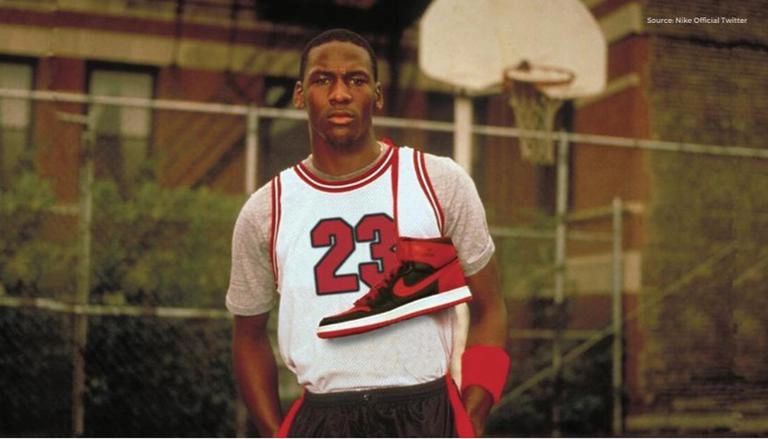
At the time, athlete endorsements for top apparel brands was commonplace. Several brands, including Adidas and Converse, had already secured deals with NBA superstars. But the Jordan-Nike partnership took on a powerful role in athlete marketing that no one had ever seen before.
Nike launched its very first pair of Air Jordan shoes in 1985. Jordan and Nike both made headlines after he insisted on wearing his Air Jordans even after the NBA fined him for not meeting uniform standards. Forty years and billions of dollars later, consumers regard the athlete-brand partnership as a match made in heaven.
Jordan posed for some of the most compelling image ads in all of sports marketing. He also appeared in television commercials that millions still view today on YouTube.
Brand endorsement deals often try to mimic the quality of relationship demonstrated by Nike and Jordan in the 1980s and 90s. He clearly favored Nike above all his other partnerships, and fans could tell that the collaboration was genuine.
Athletes on social media
By the mid-2000s, athletes began to join the emerging world of social media. Most sports celebrities had their own accounts on Facebook or Twitter by 2010.
Athlete influencer marketing on social media grew as each platform introduced verified accounts, protecting high-profile users from those who would create fraudulent accounts in athletes’ names. By 2015, most of the leading channels offered verified badges for celebrities and top creators, including Facebook, Instagram, Twitter, Pinterest, and YouTube.
Before long, sports agents urged clients to connect with audiences over social media. Fans appreciated a closer look into the personal lives of their favorite athletes. Social media posts also gave athlete brand ambassadors a natural platform to promote products.
Athlete creators during the pandemic
The arrival of COVID-19 meant game cancellations, lockdowns, and even postponements for some of the world’s largest sporting events (March Madness, Olympics, etc.).
When traditional sports events resumed, most did so with condensed schedules and without the benefit of live audiences. That meant that fans tuned in digitally before, during, and after events in a desperate attempt to feel connected to their favorite teams and athletes.
But thanks to social media and lighter schedules, athletes had more time to connect digitally with fans on a personal level. They also contributed to home workout trends to help people stay healthy while stuck at home.
Results of the NCAA decision on athlete influencer marketing
One of the biggest moments in sports influencer marketing occurred when the NCAA lifted its policy on Name Image Likeness (NIL) for college athletes. Prior to July 2021, NCAA athletes were not allowed to leverage their personal brands to earn income.

Image via Hilite
But after the Supreme Court ruled against the NCAA, college athletes from every sport and division began entertaining brand endorsement deals.
The NCAA’s reversal of NIL restrictions unlocked thousands of new social media sports influencers for brands to choose from. Additionally, this change made it essential for college athletes to establish an online presence to connect with fans earlier in their sports careers.
Athlete creators and social consciousness
In the last few years, an increasing number of athletes have leveraged social media to promote social justice and raise awareness for causes they care about. These trends put increasing pressure on brands to meet the needs of their audience with regards to social responsibility and marginalized consumer groups.
“Nearly 60% of Americans want the companies they buy products from to have a position about issues such as racial discrimination and social justice… Roughly 50% of the survey’s respondents said they often do online research to see how a brand reacted to [certain] social issues.“
– Barron’s, 2020
Racial equality
One of the most famous examples of athletes promoting racial equality is Colin Kaepernick who refused to stand for the national anthem in silent protest to racism in the U.S. His actions sparked controversy across the NFL, particularly among caucasion fans and league decision-makers.
As an activist, Kaepernick leveraged his Twitter account to speak out, though according to many, his actions negatively impacted his sports career.
“To the underestimated, the overlooked and the outcast, Trust Your Power!”
— Colin Kaepernick (@Kaepernick7) October 30, 2021
#ColininBlackandWhite
But Kaepernick wasn’t alone. Hundreds of players across professional sports followed his example in an effort to raise awareness for racial injustice.
Among the many other athlete creators who’ve promoted racial equality are Michael Jordan, Carson Wentz, Adam Shibley, Bubba Wallace, Stephen Curry, Gareth Southgate, Braden Holtby, Tom Brady, and John Cena.
Equal voting rights for all
In the wake of the Black Lives Matter movement, LeBron James founded the organization More Than a Vote to promote voting rights for black voters in 2020 and beyond.
“The group remains nonpartisan, and its primary focus is to fight for ballot access for Black voters. To that end, there are dozens of bills before state legislatures across the U.S. that would roll back access. But a second goal is to encourage continued participation among Black voters — especially those who voted for the first time in 2020 — in important municipal elections in 2021.”
– Joe Vardon, NBA correspondent
Many more celebrities and athlete creators urge citizens to get out and vote, as well as volunteer at polling sites to increase voter turnout and assist disabled citizens.
Mental health
Simone Biles took the stage in the summer of 2021 when she bowed out of the all-around competition in the Tokyo Olympics. She opened up about her battles with mental health and unashamedly prioritized her well-being over competition.
Thanks to Biles’ courage, many more athletes and celebrities revealed the toll that training and competing at high levels places on their mental and emotional health.
Gender equality
Another growing cause among athlete influencers is the #EqualPlayEqualPay movement. The fight for gender equality in sports has inspired organizations to address systemic issues at the high school and college levels, as well as push for new legislation to protect the rights of women in sports.
Among the most famous sports voices on gender equality are Serena Williams, Skylar Diggins-Smith, Ada Hegerberg, Meghan Duggan, and Billie Jean King.
Why brands should partner with athlete creators
Whether famous among millions or thousands, athlete influencers can be a great addition to your team if you seek to connect to audiences online. These creators have the following in common.
- Athletes inspire audiences to set high goals and achieve them.
- Many consumers view athletes as authority figures.
- People aspire to lifestyles that athletes promote.
- Athletes have some of the largest and most engaged audiences online.
- Athletes are influential role models for young consumers.
Authentic brand endorsements from athletes can help you achieve any number of campaign goals.
How athletes can help brands reach their marketing goals
Before searching for athlete creators, it’s critical that you know what you want your athletes to accomplish. While these influencers can drive conversions, many of them have the ability to do so much more, including (but not limited to):
- Generate brand awareness
- Promote special events
- Drive website traffic
- Inform audiences on quality products and best practices
- Create compelling lifestyle content featuring your product
Once you create your campaign objectives, take a moment to break down each goal into key performance indicators (KPIs). These KPIs will help you identify which metrics demonstrate campaign success.
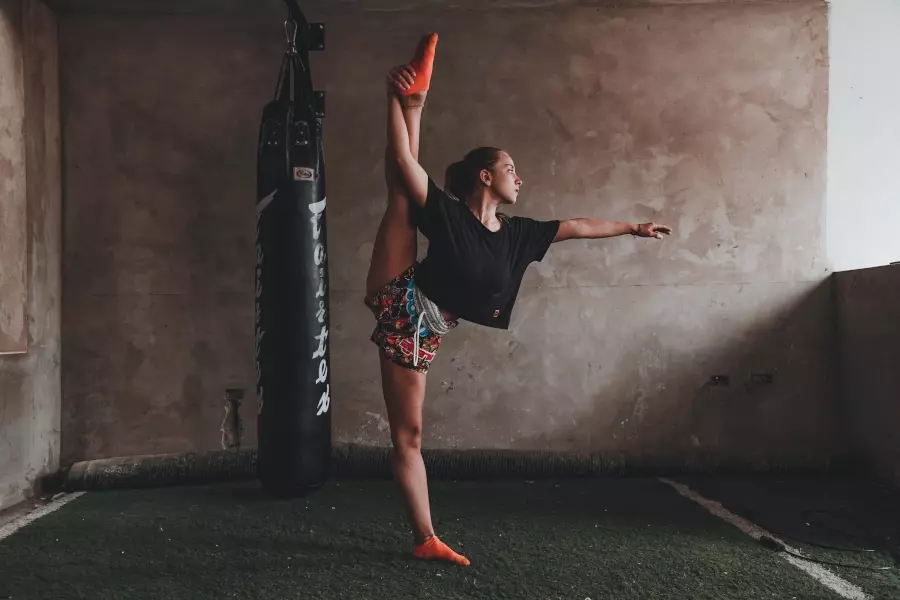
Key metrics for top athlete influencers
Each of your KPIs should have performance metrics assigned to them. For example, brand awareness goals might have the following KPI:
Reach X followers on Instagram by the end of the quarter.
According to this KPI, your key metrics include:
- Follower count
- Number of engagements
- Number of athlete creator posts
Similarly, you can create KPIs and assign performance metrics across each of your campaign goals. Additional athlete creator metrics can include:
- Link clicks
- Volume of user-generated content (UGC)
- Unique visitors on website
- Conversions
- Coupon code redemptions
- Amount of reusable creator posts for paid ads
- Average order value from campaign
When deciding which KPIs and metrics to use, everything goes back to your marketing goals. And while sales volume is a great measurement of success, remember that quality engagements and ongoing UGC can greatly increase future sales and customer lifetime value, while also lowering your customer acquisition costs over time.
Understanding an athlete’s audience
When searching for athletes on social media, you can increase the effectiveness of your recruiting efforts by doing a quick influencer audience analysis. If you’re using a creator management platform, you should already have some robust tools at your disposal.
But if you’re performing an audience analysis manually, simply pull a sample from the creator’s followers to find out:
- What do these followers have in common?
- Do they share your brand’s values?
- Do they like similar brands?
- What hashtags do they use?
- What kind of posts do they most often engage with likes, comments, or shares?
Types of athlete creators
Professional athletes
Most professional athletes are also celebrities. This means that you may pay more for a product endorsement, but the brand awareness results could be tremendous.
Extreme sports athletes
Extreme sports include skydiving, base jumping, skateboarding, dirt bike racing, and similar physical activities known for being more dangerous than the average sport. These athlete creators frequently work with sponsors and provide outstanding content simply by documenting their stunts and day-to-day activities.
NCAA athletes
Prior to 2021, all NCAA athletes were banned from participating in brand endorsement deals. And while they could manage their social media accounts, they couldn’t leverage their NIL to make additional income.
The NCAA lifted this NIL restriction in August, and now college athletes are open to partnering with their favorite brands.
Sports entertainment athletes
Another category of athletes are those that compete in televised live events, such as American Ninja Warrior, WWE, and esports. These competitors often work with sponsors or promote brands with whom they share values.
Olympic athletes
Many athlete creators become famous after their performance in the Olympic Games. Most of the top champions are worldwide sensations, making them excellent partners for international brands.
Fitness influencers
Bodybuilding, personal training, and fitness influencers are also athlete creators. Many of these creators maintain deep relationships with small audiences of between 1,000 and 50,000 followers. Fitness influencers also do an amazing job as ambassadors and affiliates.
Ecommerce brands succeeding with athlete creators
Penfolds
Penfolds is a wine ecommerce vendor that loves to work with artists, fashion influencers, and athlete creators. Their partnership with NBA star, Ben Simmons, is among their most successful.
Nutrabolt
Nutrabolt maintains several brands of pre-workout supplements and energy drinks. Their favorite creator partners include fitness influencers and personal trainers. The Nutrabolt family is one of the largest influencer communities in the industry.
Bumble
Bumble partnered with Serena Williams to promote female empowerment in online dating. The brand initially launched Williams as a spokesperson during the Super Bowl in 2019 but has since included her in their YouTube series, Bumble’s “Question Game.”
Conclusion
Whether promoting a product unique to sports or to create buzz within a demographic that loves athletes, sports influencers can activate an enthusiastic response from fans.
The key in any creator partnership is authentic relationships with your athletes. When they feel genuine love for your brand, their product endorsements will resonate with members of their audience and motivate buyers to take action.
Learn more about influencer marketing: Influencer Marketing 101

